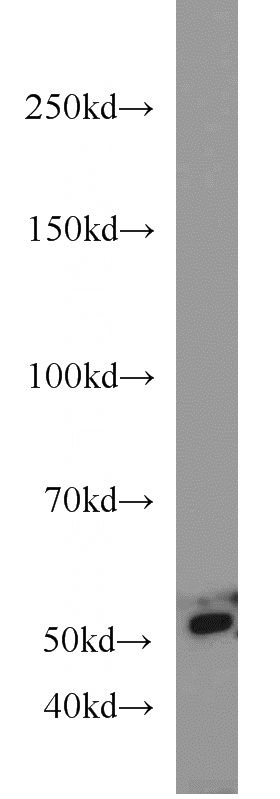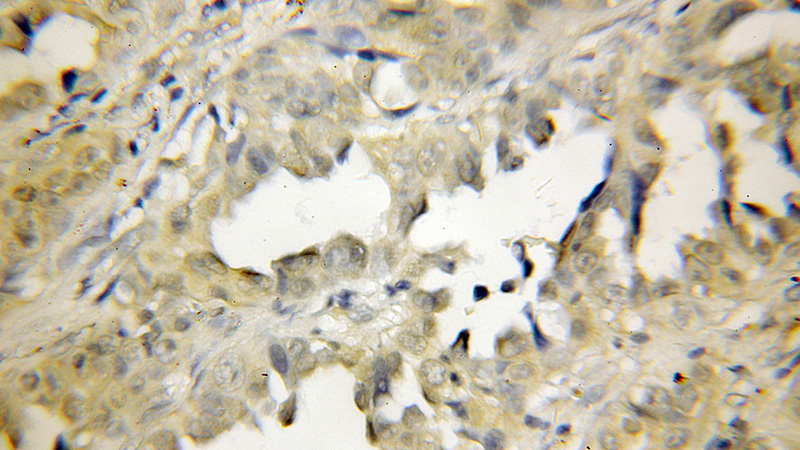-
Product Name
PEPD antibody
- Documents
-
Description
PEPD Rabbit Polyclonal antibody. Positive WB detected in HeLa cells, HepG2 cells, MDA-MB-453s cells, mouse skin tissue. Positive IHC detected in human lung cancer tissue. Observed molecular weight by Western-blot: 55 kDa
-
Tested applications
ELISA, WB, IHC
-
Species reactivity
Human, Mouse; other species not tested.
-
Alternative names
Imidodipeptidase antibody; PEPD antibody; peptidase D antibody; PRD antibody; PROLIDASE antibody; Proline dipeptidase antibody; X Pro dipeptidase antibody; Xaa Pro dipeptidase antibody
-
Isotype
Rabbit IgG
-
Preparation
This antibody was obtained by immunization of PEPD recombinant protein (Accession Number: NM_000285). Purification method: Antigen affinity purified.
-
Clonality
Polyclonal
-
Formulation
PBS with 0.1% sodium azide and 50% glycerol pH 7.3.
-
Storage instructions
Store at -20℃. DO NOT ALIQUOT
-
Applications
Recommended Dilution:
WB: 1:200-1:2000
IHC: 1:20-1:200
-
Validations

HeLa cells were subjected to SDS PAGE followed by western blot with Catalog No:113707(PEPD antibody) at dilution of 1:600

Immunohistochemical of paraffin-embedded human lung cancer using Catalog No:113707(PEPD antibody) at dilution of 1:50 (under 10x lens)
-
Background
PEPD, also named as PRD, Prolidase, X-Pro dipeptidase, Imidodipeptidase, Peptidase D and Proline dipeptidase, belongs to the peptidase M24B family and Eukaryotic-type prolidase subfamily. PEPD splits dipeptides with a prolyl or hydroxyprolyl residue in the C-terminal position. It plays an important role in collagen metabolism because the high level of iminoacids in collagen. Defects in PEPD are a cause of prolidase deficiency (PD). PEPD is considered as the most promising candidate genes for altering AAA risk, based on gene function, association evidence, gene expression, and protein expression.(PMID:21247474)
-
References
- Lillvis JH, Kyo Y, Tromp G. Analysis of positional candidate genes in the AAA1 susceptibility locus for abdominal aortic aneurysms on chromosome 19. BMC medical genetics. 12:14. 2011.
Related Products / Services
Please note: All products are "FOR RESEARCH USE ONLY AND ARE NOT INTENDED FOR DIAGNOSTIC OR THERAPEUTIC USE"
